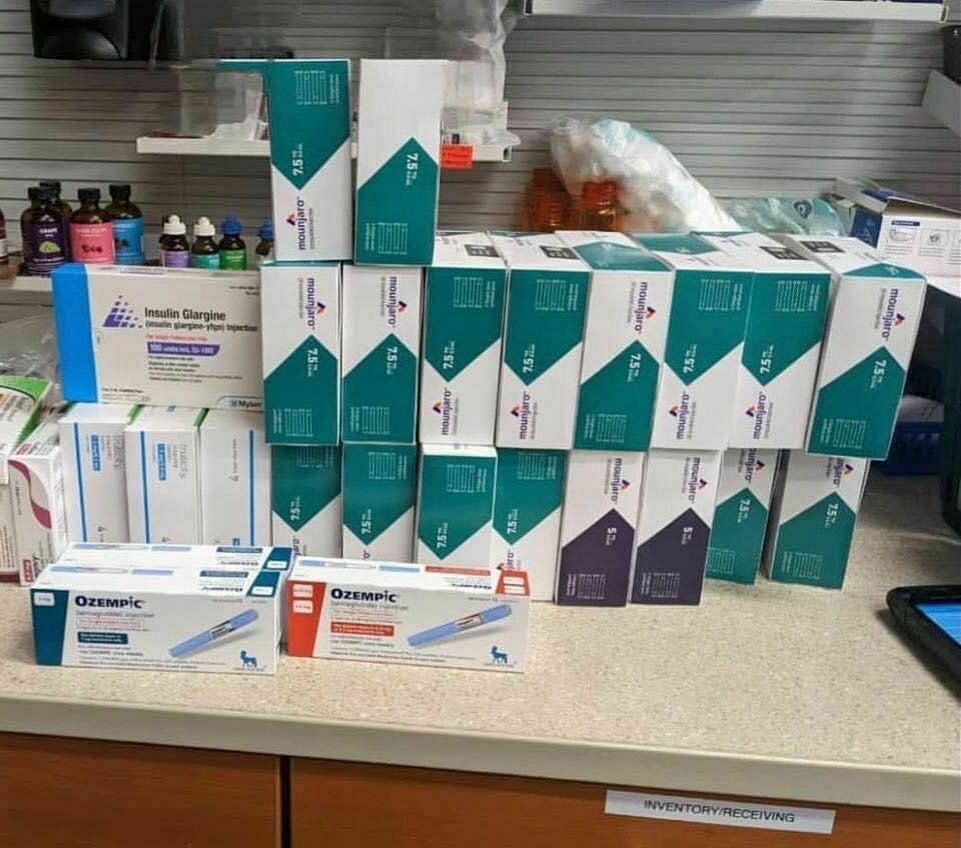WELCOME TO DR JOHN WEIGHT LOSS CLINIC
General information about the safe and effective use of WEGOVY
Medicines are sometimes prescribed for purposes other than those listed in a Medication Guide. Do not use WEGOVY for a condition for which it was not prescribed. Do not give WEGOVY to other people, even if they have the same symptoms that you have. It may harm them. You can ask your pharmacist or healthcare provider for information about WEGOVY that is written for health professionals.
What are the possible side effects of WEGOVY®? WEGOVY® may cause serious side effects, including:
See“WhatisthemostimportantinformationIshouldknowaboutWEGOVY®?” inflammation of your pancreas (pancreatitis). Stop using WEGOVY® and call your healthcare provider right away if you have severe pain in your stomach area (abdomen) that will not go away, with or without vomiting. You may feel the pain from your abdomen to your back. gallbladder problems. WEGOVY® may cause gallbladder problems including gallstones.
Some gallbladder problems need surgery. Call your healthcare provider if you have any of the following symptoms:
• pain in your upper stomach (abdomen) • yellowing of skin or eyes (jaundice) fever • clay-colored stools
increased risk of low blood sugar (hypoglycemia) in patients with type 2 diabetes, especially those who also take medicines to treat type 2 diabetes mellitus such as sulfonylureas or insulin. Low blood sugar in patients with type 2 diabetes who receive WEGOVY® can be both a serious and common side effect. Talk to your healthcare provider about how to recognize and treat low blood sugar. You should check your blood sugar before you start taking WEGOVY® and while you take WEGOVY®. Signs and symptoms of low blood sugar may include: dizziness or light-headedness • blurred vision• anxiety• irritability or mood changes • fast heartbeat kidney problems (kidney failure). In people who have kidney problems, diarrhea, nausea, and vomiting may cause a loss of fluids (dehydration) which may cause kidney problems to get worse. It is important for you to drink fluids to help reduce your chance of dehydration serious allergic reactions. Stop using WEGOVY® and get medical help right away, if you have any symptoms of a serious allergic reaction including: swelling of your face, lips, tongue or throat• severe rash or itching • very rapid heartbeat• problems breathing or swallowing • fainting or feeling dizzy change in vision in people with type 2 diabetes. Tell your healthcare provider if you have changes in vision during treatment with WEGOVY®.increased heart rate. WEGOVY® can increase your heart rate while you are at rest. Your healthcare provider should check your heart rate while you take WEGOVY®. Tell your healthcare provider if you feel your heart racing or pounding in your chest and it lasts for several minutes.depression or thoughts of suicide. You should pay attention to any mental changes, especially sudden changes in your mood, behaviors, thoughts, or feelings. Call your healthcare provider right away if you have any mental changes that are new, worse, or worry you. The most common side effects of WEGOVY® in adults or children aged 12 years and
older may include:
• nausea
• diarrhea
• vomiting
• constipation
• stomach (abdomen) pain • headache
• tiredness (fatigue)
• upset stomach
• dizziness • stomach flu
• feeling bloated • heartburn
• belching • runny nose or sore throat • gas
• sweating• slurred speech• hunger• confusion or drowsiness • feeling jittery
Talk to your healthcare provider about any side effect that bothers you or does not go away. These are not all the possible side effects of WEGOVY®. Call your doctor for medical advice about side effects. You may report side effects to FDA at 1-800-FDA-1088
What is health insurance?
At its heart, health insurance is a contract between you and your health insurer to cover your medical expenses. Your health insurance company pays for some or all of your medical care, depending on your insurance plan.
hat might my health insurance plan cover?
Plans can be very different. It’s important to check your to see what your own plan covers. An SBC is a short, easy-to-understand summary of what your plan covers and the associated costs. It can even help you compare the benefits and costs of different plans.For example: If you have diabetes, and you’re shopping for health insurance, you may want to pick an insurance plan that provides strong coverage for the prescriptions and supplies you need, such as diabetic test strips. Of course, everyone has different needs. That’s why SBCs can be so useful. If you have any questions about what’s covered in an SBC, it may help to contact your insurance provider or agent.
© 2023 Dr John Weight loss Clinic. All Rights Reserved.
Your cart is empty
0
item(s)
/
£0
Checkout
Clear cart


